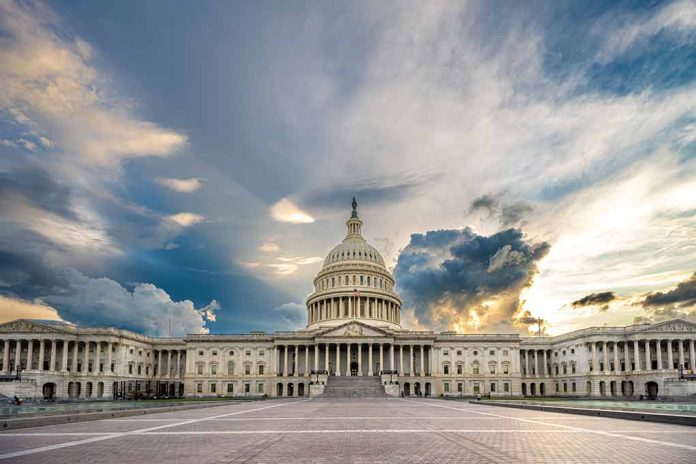
The House has approved a three-month continuing resolution to prevent a government shutdown, but the journey to this point has been far from smooth.
At a Glance
- House Republicans will fast-track a short-term spending bill to keep the government open.
- The bill bypasses the House Rules Committee due to conservative opposition.
- Speaker Mike Johnson needs Democratic support to pass the legislation.
- The vote is planned for Wednesday according to House Majority Leader Steve Scalise.
House Moves to Avert Government Shutdown
On the verge of another government shutdown, the House has taken decisive action by passing a three-month continuing resolution (CR) on Wednesday, preventing the shutdown and securing government funding until December 20. The measure was spearheaded by Speaker Mike Johnson, following a failed attempt to pass a six-month CR coupled with the SAVE Act. This current CR garnered bipartisan support, although it has raised concerns among some Republicans about the potential for a comprehensive year-end omnibus bill. Johnson has vowed to prevent an omnibus, stressing the political repercussions a shutdown could have as elections approach.
The urgency behind the current CR is intensified by the Senate’s inactivity on the twelve essential appropriations bills. To bypass conservative opposition, the bill was brought directly to the floor for a vote under suspension of the rules, requiring a two-thirds majority for passage. On Wednesday, it successfully passed, but notably, House conservatives have voiced their preference for passing individual appropriations bills rather than a short-term funding measure.
“Congress needs to approve a stop-gap spending bill before the end of the budget year on Sept. 30 to avoid a government shutdown just a few weeks before voters go the polls and elect the next president.”
@APkfreking https://t.co/5IgIgq34OT
— Lisa Mascaro (@LisaMascaro) September 8, 2024
Bipartisan Effort and Concerns
The CR, described by Speaker Johnson as a “narrow, bare-bones” initiative, aims to keep the government operating at current funding levels through December 20, effectively delaying the spending battle until after the November election. Johnson acknowledged the need for bipartisan support due to significant opposition within his party over the lack of spending cuts.
“This agreement could have very easily been reached weeks ago, but Speaker Johnson and House Republicans chose to listen to Donald Trump’s partisan demands, instead of working with us from the start,” said Senate Majority Leader Chuck Schumer.
Some Republicans, like Reps. Thomas Massie and Chip Roy, have expressed substantial opposition. Massie was particularly vocal, questioning the rationale behind setting up a shutdown crisis close to the holiday season. Meanwhile, Johnson has issued warnings against the repercussions of a shutdown, citing a poll indicating that two-thirds of likely voters are opposed to it.
Potential Outcomes and Future Actions
With the CR’s passage, the government remains funded at current levels through December 20. This temporary measure comes after the rejection of Johnson’s initial six-month proposal and the removal of a Trump-backed measure requiring proof of citizenship to vote. The bill also includes $231 million in additional funding for the Secret Service.
“While this is not the solution any of us prefer, it is the most prudent path forward under the present circumstances. As history has taught and current polling affirms, shutting the government down less than 40 days from a fateful election would be an act of political malpractice,” Johnson stated in his defense.
With this vote, the House has bought time to negotiate the remaining appropriations bills and potentially avoid a larger crisis. However, concerns over a year-end omnibus bill loom large, even as bipartisan leaders praise the negotiated effort.





